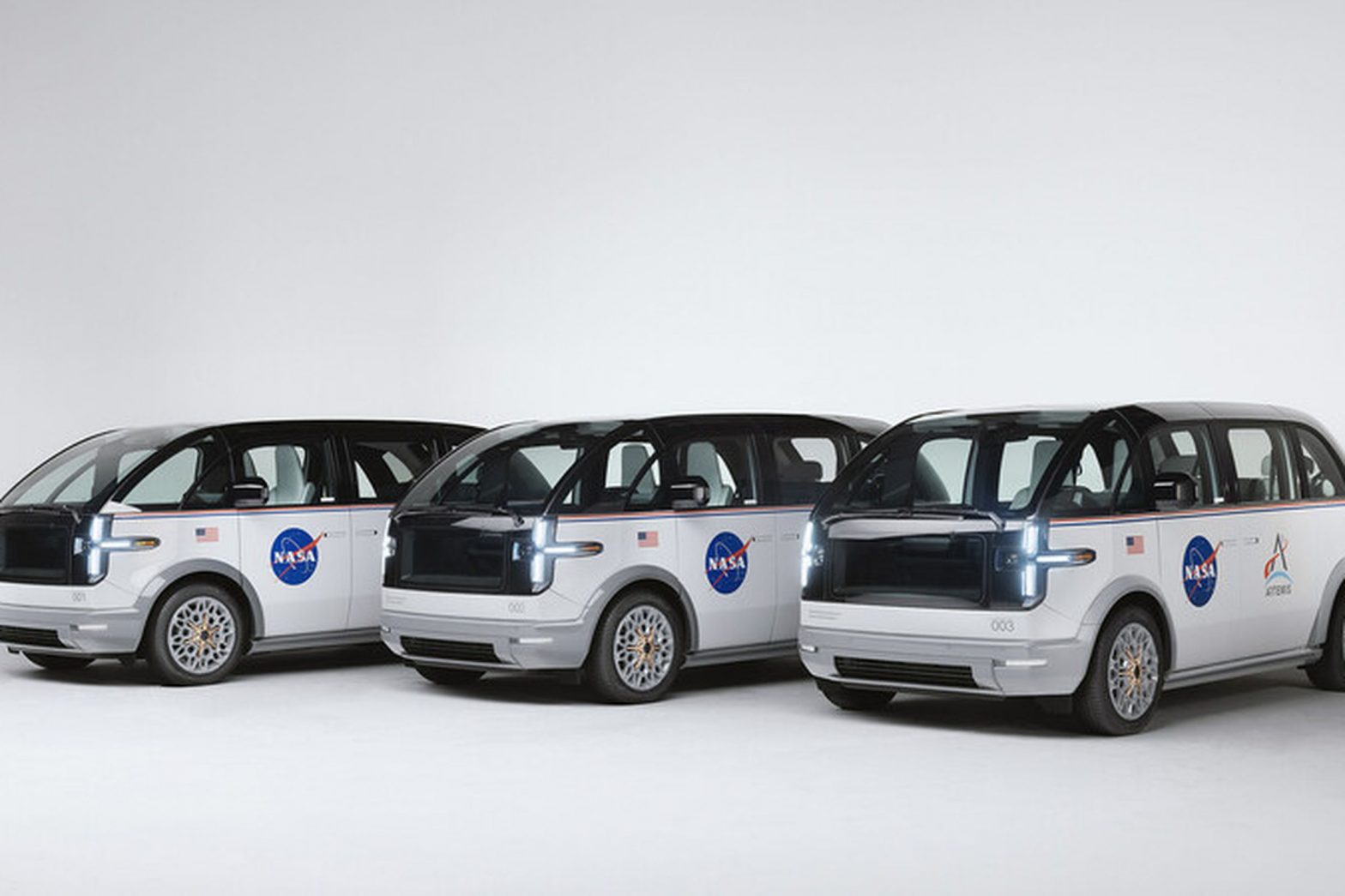/
The company is delivering vehicles to NASA and the US Army and designing battery packs for the Defense Department. It’s a far cry from the startup’s original plans for adventure-themed trucks and vans.
Share this story
:format(webp)/cdn.vox-cdn.com/uploads/chorus_asset/file/24784346/Canoo_LifestyleVehicle_Nasa_Studio_Family.jpg)
When Canoo first unveiled its cool, futuristic-looking electric van back in 2021, a non-zero number of friends reached out to me to ask when they could buy one.
The answer is probably never. Not unless they work for the federal government.
The struggling EV startup has been on the verge of running out of money since last year. Its cash burn remains high, and analysts say it’s at risk for insolvency. Indeed, Canoo’s stock has been trading for less than a dollar, putting it at risk of being delisted from the stock exchange. But despite its financial woes, the federal government is more than happy to continue to do business with the company.
Today, Canoo announced it had successfully delivered three crew transportation vehicles to NASA for use in the agency’s Artemis mission to the Moon. The vehicles were delivered to NASA’s Kennedy Space Center in Florida, where they will be used to transport the astronauts to the launch pad for the Artemis lunar missions starting next year.
Canoo has also supplied EVs to the US Army for “analysis and demonstration.” Basically, the Army is testing the company’s Light Tactical Vehicle (LTV) to see whether it wants to order more of them for military purposes. The LTV is built on the same platform as Canoo’s Duplo toy-looking EV prototype truck that was first revealed in 2021.
And this week, Canoo said it had “expanded” its partnership with the Defense Department’s Innovation Unit to develop high-capacity battery packs for use in military vehicles, as well as energy-dense batteries for the US Navy.
It’s quite the pivot for the six-year-old company, which originally launched in a nearly zero-interest rate environment along with over a dozen other EV startups that all had dreams of becoming the next Tesla. Canoo planned to manufacture electric vans and trucks for customers interested in outdoor adventures — basically the same pitch as Rivian, which has also struggled but is now seeing its deliveries increase.
Canoo was founded in late 2017 when former BMW executive Stefan Krause left then-floundering EV startup Faraday Future. Krause and some of the other executives who co-founded Canoo — which they originally called Evelozcity — were sued by Faraday Future for poaching employees and allegedly stealing trade secrets, though the lawsuit was settled in late 2018.
The automaker has several EVs in the works, including the MPDV, a multi-purpose delivery van, and the Canoo Pickup Truck. The toyish truck showed just how far Canoo is willing to push the design of the microbus-style vehicle it first debuted back in 2019, which it originally planned to sell on a subscription-only basis.
It’s unclear whether NASA or the Defense Department is concerned about Canoo’s gloomy financial outlook or how a possible Chapter 11 filing could affect its ongoing projects for the government. Neither agency responded to requests for comment.
If Canoo’s financial outlook continues to worsen, its dreams of becoming the next Tesla may never be realized. But if NASA, the US Army, and other agencies see value in Canoo’s EVs, the company may actually turn out to be more like Elon Musk’s other company, with its bevy of lucrative government contracts: SpaceX.
